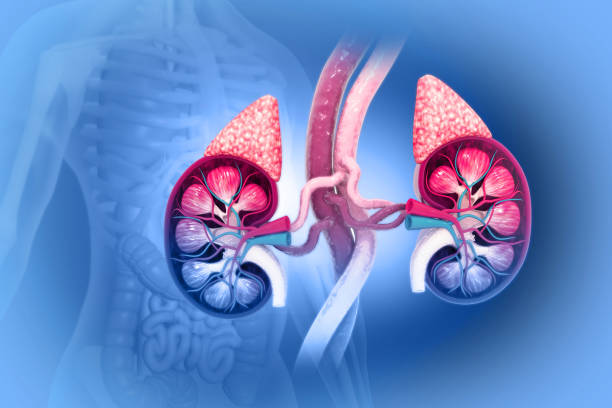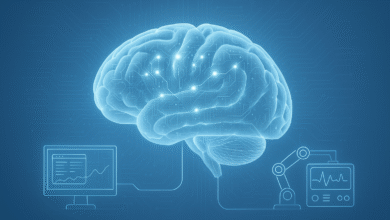
The adrenal glands play a crucial role in maintaining overall health and well-being. These small, triangular-shaped glands located on top of the kidneys are responsible for producing hormones that regulate various bodily functions. Monitoring the function of the adrenal glands is essential for early detection of any abnormalities or disorders that may arise.
Introduction
The adrenal glands, also known as suprarenal glands, are vital components of the endocrine system. Positioned just above the kidneys, these glands are divided into two parts: the outer adrenal cortex and the inner adrenal medulla. Each part has distinct functions and produces different hormones.
Understanding the Adrenal Glands

What are the adrenal glands?
The adrenal glands are responsible for secreting essential hormones that help regulate bodily functions. The outer adrenal cortex produces hormones such as cortisol, aldosterone, and androgens, while the inner adrenal medulla produces adrenaline and noradrenaline.
Functions of the adrenal glands
The adrenal glands are involved in several important functions in the body, including:
- Regulating the body’s response to stress
- Maintaining blood pressure and electrolyte balance
- Metabolism regulation
- Controlling inflammation and immune response
- Assisting in the development and maintenance of secondary sexual characteristics
Importance of Monitoring Adrenal Gland Function
Regular monitoring of adrenal gland function is crucial for various reasons.
Early detection of adrenal gland disorders
Monitoring allows for the early detection of adrenal gland disorders, such as adrenal insufficiency, Cushing’s syndrome, and adrenal tumors. Timely identification of these conditions enables healthcare professionals to initiate appropriate treatment and management strategies promptly.
Managing adrenal gland-related conditions
For individuals already diagnosed with adrenal gland disorders, monitoring helps in assessing the effectiveness of treatment and managing the condition optimally. It allows healthcare professionals to make necessary adjustments to medication dosages or treatment plans as needed.
Common Methods of Adrenal Gland Function Monitoring
Several methods are employed to monitor adrenal gland function effectively. These methods may include blood tests, urine tests, and imaging tests.
Blood tests
Blood tests are commonly used to measure hormone levels produced by the adrenal glands. Cortisol, aldosterone, and other relevant hormone levels can be assessed through blood samples. These tests provide valuable information about the functioning of the adrenal glands.
Urine tests
Urine tests are another means of monitoring adrenal gland function. These tests often measure the level of cortisol and its metabolites in urine samples collected over a 24-hour period. The analysis helps in evaluating the production and excretion of cortisol by the adrenal glands.
Imaging tests
Imaging tests, such as CT scans or MRIs, may be conducted to visualize the adrenal glands and detect any structural abnormalities or tumors. These tests provide detailed images that aid in the diagnosis and evaluation of adrenal gland disorders.
Symptoms and Conditions Associated with Adrenal Gland Dysfunction

Adrenal gland dysfunction can manifest in various ways, and the symptoms often depend on the specific condition present.
Adrenal insufficiency
Adrenal insufficiency occurs when the adrenal glands do not produce enough hormones, particularly cortisol. Symptoms may include fatigue, weight loss, low blood pressure, muscle weakness, and changes in skin pigmentation.
Cushing’s syndrome
Cushing’s syndrome results from an excessive production of cortisol by the adrenal glands. Symptoms may include weight gain, particularly in the face and abdomen, high blood pressure, muscle weakness, mood swings, and thinning of the skin.
Adrenal tumors
Adrenal tumors can be either benign (non-cancerous) or malignant (cancerous). Depending on the nature of the tumor, symptoms may include abdominal pain, unexplained weight loss, hormonal imbalances, and high blood pressure.
Steps to Monitor Adrenal Gland Function
Monitoring adrenal gland function involves several steps that healthcare professionals follow to gather information about the patient’s condition.
Consultation with a healthcare professional

The process begins with a consultation with a healthcare professional, typically an endocrinologist or a specialist in hormonal disorders. The healthcare professional will evaluate the patient’s medical history, including any previous adrenal gland-related conditions or symptoms.
Medical history evaluation
A thorough evaluation of the patient’s medical history helps identify any risk factors or pre-existing conditions that may contribute to adrenal gland dysfunction. It is important to provide accurate information about symptoms experienced and any relevant family history.
Physical examination
A physical examination is conducted to assess general health, blood pressure, and signs of adrenal gland dysfunction, such as changes in skin pigmentation or abdominal abnormalities. This examination aids in narrowing down potential diagnoses.
Diagnostic tests and procedures
Based on the initial evaluation, the healthcare professional may recommend specific diagnostic tests to assess adrenal gland function. These tests may include blood tests to measure hormone levels, urine tests to evaluate cortisol excretion, or imaging tests to visualize the adrenal glands and detect any abnormalities.
Interpreting Adrenal Gland Function Test Results

Understanding the results of adrenal gland function tests is crucial for accurate diagnosis and effective management.
Normal range values
Each test has a defined normal range within which the results are considered to be within health parameters. These ranges may vary slightly depending on the laboratory performing the tests. Comparing individual results to the normal range values helps in determining if adrenal gland function is within the expected range.
Abnormal test results and their implications
Abnormal test results may indicate adrenal gland dysfunction or other related conditions. Further evaluation and interpretation by a healthcare professional are necessary to identify the underlying cause and develop an appropriate treatment plan.
Treatment and Management of Adrenal Gland Disorders
The treatment and management of adrenal gland disorders depend on the specific condition and its severity. Several approaches may be employed.
Medications
Medications are often prescribed to regulate hormone levels or address specific symptoms associated with adrenal gland disorders. These may include cortisol replacement therapy, medications to suppress excessive hormone production, or medications to control blood pressure.
Read More; 10 Ideas FBI Program tasked Infrastructure Security In 2023
Lifestyle changes
Certain lifestyle modifications may be recommended to manage adrenal gland disorders. These may include dietary adjustments, stress management techniques, regular exercise, and adequate sleep. Consulting with a healthcare professional is essential to determine the most suitable lifestyle changes for each individual.
Surgical interventions
In cases where adrenal tumors or structural abnormalities are present, surgical intervention may be necessary. Surgery aims to remove the tumor or affected part of the adrenal gland. This option is usually considered when the tumor is malignant or causing significant hormonal imbalances.
Importance of Regular Monitoring
Regular monitoring of adrenal gland function is crucial for ongoing management and follow-up care.
Follow-up appointments
After the initial assessment and diagnosis, follow-up appointments are scheduled to monitor progress, adjust treatment plans, and ensure that the condition is being managed effectively. These appointments may include further testing and evaluation to track changes in adrenal gland function.
Long-term management
For individuals diagnosed with chronic adrenal gland disorders, regular monitoring becomes a part of their long-term management plan. It helps healthcare professionals assess treatment efficacy, identify any changes or complications, and make necessary adjustments to medication dosages or treatment strategies.
Conclusion
Monitoring the function of the adrenal glands is essential for maintaining overall health and managing adrenal gland disorders effectively. By understanding the importance of monitoring, common methods used, and the steps involved, individuals can work closely with healthcare professionals to ensure early detection, accurate diagnosis, and appropriate treatment. Regular monitoring, combined with personalized treatment plans and lifestyle modifications, can help individuals achieve optimal adrenal gland function and overall well-being.
FAQs
What are the adrenal glands responsible for?
The adrenal glands are responsible for producing hormones that regulate various bodily functions, including metabolism, stress response, blood pressure, and immune system functioning.
Can adrenal gland dysfunction be cured?
The treatment and management of adrenal gland dysfunction depend on the specific condition. While some adrenal gland disorders can be managed effectively, others may require long-term treatment and monitoring.
Are there any risks associated with adrenal gland function tests?
Adrenal gland function tests are generally safe and carry minimal risks. However, some tests may involve the use of contrast dyes or require blood draws, which may have slight risks associated with them. Your healthcare professional will discuss any potential risks or side effects with you.
Can stress affect adrenal gland function?
Yes, chronic stress can affect adrenal gland function by causing an overproduction or underproduction of hormones. Prolonged stress can potentially contribute to adrenal gland disorders such as adrenal insufficiency or Cushing’s syndrome.
How often should adrenal gland function be monitored?
The frequency of monitoring adrenal gland function depends on the individual’s specific condition and treatment plan. It is best to consult with a healthcare professional to determine the appropriate monitoring schedule for your particular situation.











